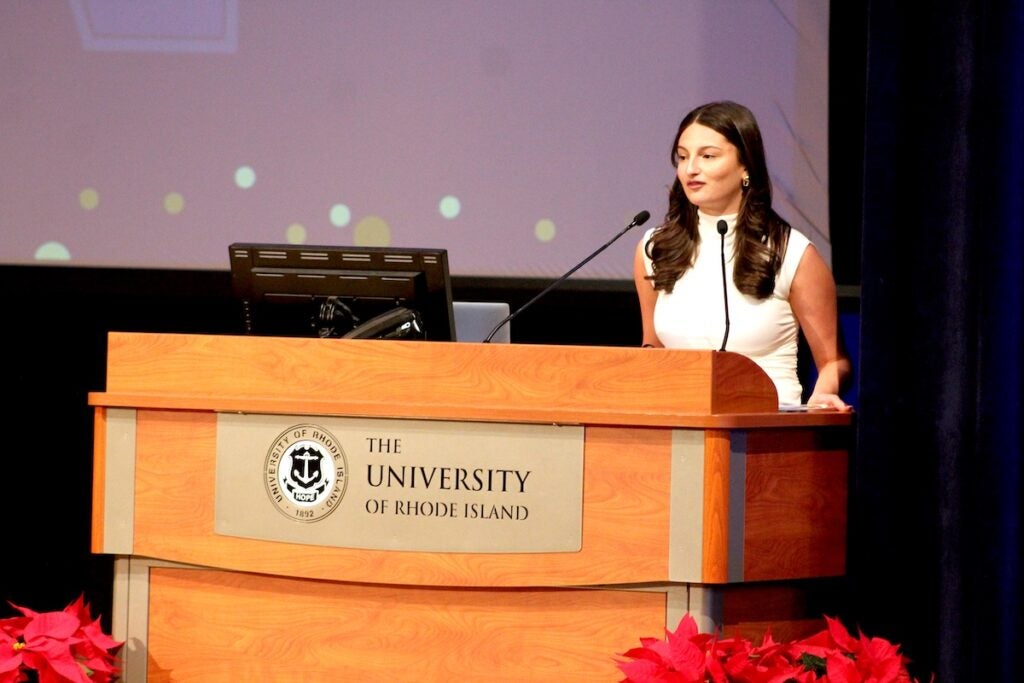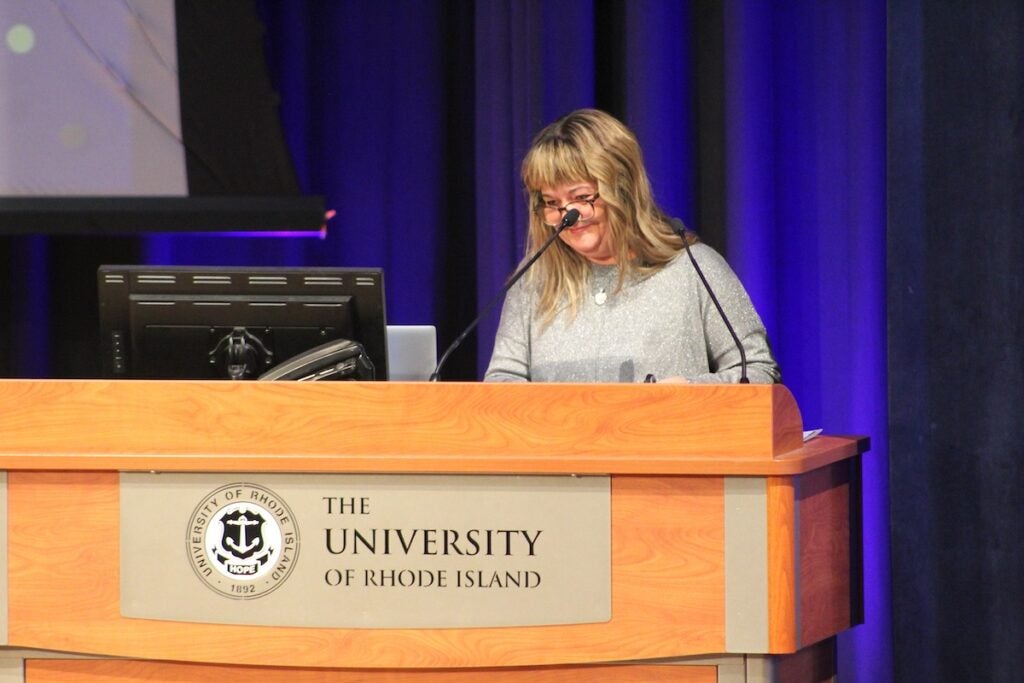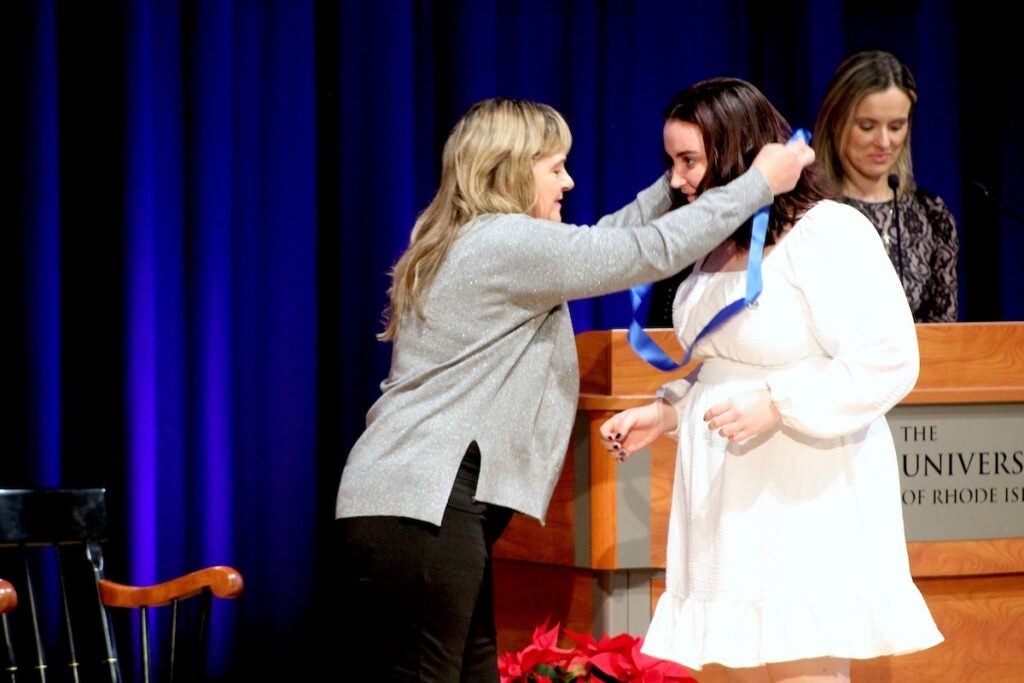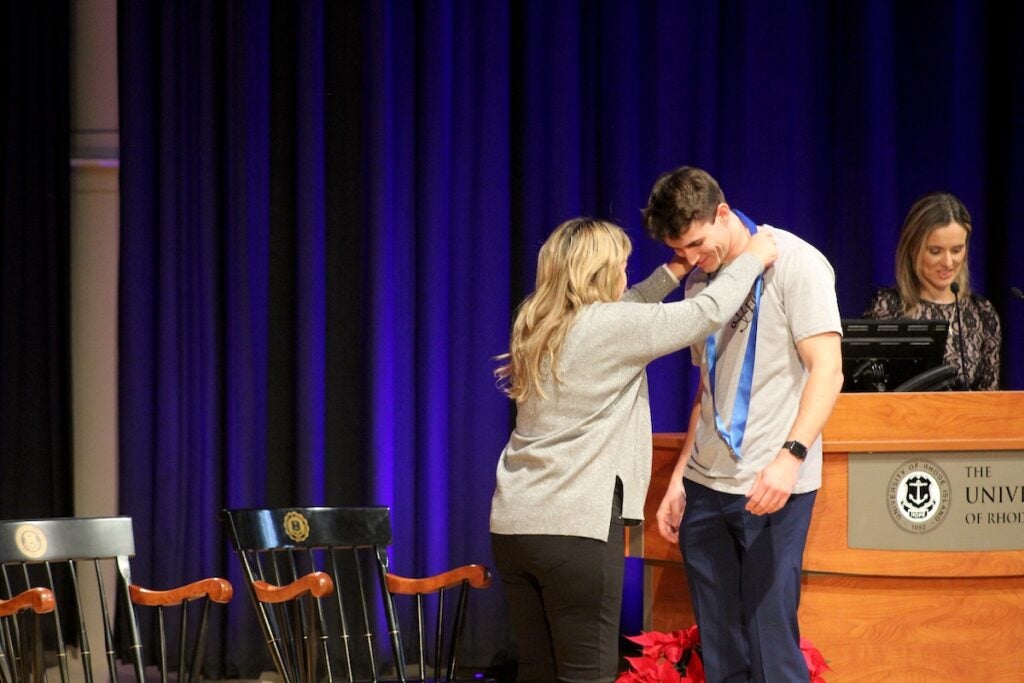Forty-two graduates received their custom University of Rhode Island College of Nursing pin during the college’s semi-annual Pinning Ceremony after the University’s December Commencement exercises on Dec. 13.
Each nursing graduate traditionally receives the college’s unique pin, which was established by the first graduating class on 1950. It represents professional nursing education, which includes the three aspects of development: the spirit of nursing, the science of nursing, and the art of nursing, according to the pin’s description.
“The central motif of the pin is an eight pointed cross similar to those worn during the crusades by knights who were members of the hospital orders,” the tradition reads. “These points represent humility, mercy, sincerity and kindness—qualities of character which the members were encouraged to emulate. Super-imposed is the University seal, which represents the academic and clinical preparation for professional nursing.”

College of Nursing Dean Danny Willis, URI President Marc Parlange, and Provost Barbara Wolfe greeted the graduates and their families in Edwards Auditorium, while Clinical Assistant Professor Jennifer Fuvich delivered the faculty address. Samantha McKechnie congratulated her fellow graduates in the undergraduate student address before Assistant Professor Thais Sao-Joao joined Fuvich in awarding the pins to graduates.
Graduates include: Julia Andersen, Abigail Antonellis, Ashley Asencio Orozco, Kamryn Assalone, Samantha Bacon, Kyra Boucher, Sean Cheney, Ava Condon, Amanda Dauwer, Emily DiMatteo, Julia Farias, Ashley Farinella, Quinn Frost, Gillian Greenslade, Rory Hennings, Grace King, Emma Kusick, Rachel LaPorte, Emily Lahey, Kaylee Lameiro, Isabella Lucear, Jessica McClain, Lindsey McCullough, Samantha McKechnie, Alexis Melanson, Kyla Moore, Bridget Nielsen, Jessica Noel, Lynsie O’Leary, Sydney Olszewski, Madison Oneppo, Ariana Perron, Samuel Popat, Sophia Promuka, Ariah Rounds, Josephine Scallatino, Brooke Sipowicz, Serena Sousa, Jessica Tosi, Victoria Tunney, Diana Turano, Isabella Vacca.










